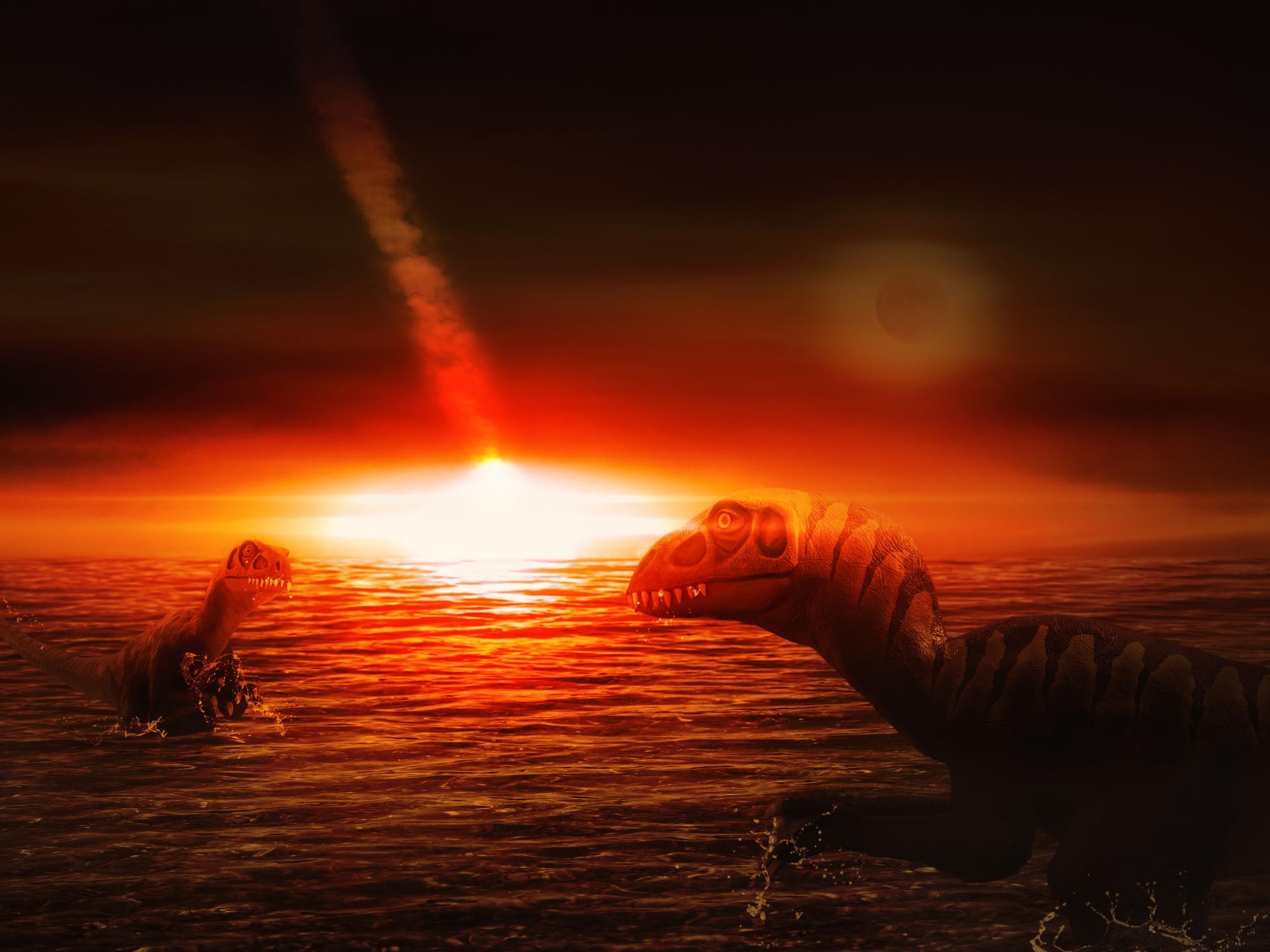Underwater volcanoes may have contributed to dinosaur extinction
Volcanic activity triggered by meteorite impact could have added to environmental catastrophe that killed majority of life on Earth 66 million years ago

Your support helps us to tell the story
From reproductive rights to climate change to Big Tech, The Independent is on the ground when the story is developing. Whether it's investigating the financials of Elon Musk's pro-Trump PAC or producing our latest documentary, 'The A Word', which shines a light on the American women fighting for reproductive rights, we know how important it is to parse out the facts from the messaging.
At such a critical moment in US history, we need reporters on the ground. Your donation allows us to keep sending journalists to speak to both sides of the story.
The Independent is trusted by Americans across the entire political spectrum. And unlike many other quality news outlets, we choose not to lock Americans out of our reporting and analysis with paywalls. We believe quality journalism should be available to everyone, paid for by those who can afford it.
Your support makes all the difference.Volcanic activity caused by the impact of an enormous meteor may have contributed to the demise of the dinosaurs 66 million years ago.
There has been much debate in scientific circles about the role played by volcanoes in the massive exaction event that wiped out much of life on Earth at the end of the Cretaceous period. Volcanoes in India’s Deccan Traps have been implicated, but have been ruled out by many geologists owing to a mismatch between their increased activity and the extinction date.
However, analysis of the sea floor has revealed a whole new source of volcanic activity at the bottom of the ocean that could have played a key role in the event.
“We found evidence for a previously unknown period of globally heightened volcanic activity during the mass-extinction event,” said Dr Joseph Byrnes, a geophysicist at the University of Minnesota who led the study.
The researchers think the impact of the “Chicxulub meteorite” triggered the release of magma stored in underwater ridges. Seismic waves sent through the Earth by the meteorite could have exacerbated volcanic activity that was already going on at these ridges, adding further to the environmental disruption caused by the initial impact.
“Our work suggests a connection between these exceedingly rare and catastrophic events, distributed over the entire planet,” said Professor Leif Karlstrom, a volcanologist at the University of Oregon. “The meteorite’s impact may have influenced volcanic eruptions that were already going on, making for a one-two punch.”
To determine ancient volcanic activity in the oceans, Dr Byrnes and his colleagues analysed data derived from satellite observations to look for excess matter on the sea floor.
They found evidence for changes in the sea floor crust resulting from magma emerging from it, around the time of the extinction event 66 million years ago. Their results were published in the journal Science Advances.
The scientists proposed that the pulse of marine volcanic activity could therefore have played a key role in the environmental crisis that led to the extinction of 75 per cent of all species on Earth at that point – including the dinosaurs.
Volcanic eruptions have been linked with other extinction events. Changes to the global environment such as the release of large quantities of toxic gases into the atmosphere and ocean acidification can all contribute to species extinction.
Besides providing evidence of previously unknown volcanic activity, the new research also supports a potential role for the Deccan Trap volcanoes. While eruptions may have already been going on in the Deccan Traps at the time of the Chicxulub meteorite impact, they too could have been made more intense after it struck.
Dr Byrnes noted that while the study does not provide a direct link between volcanic activity and the death of the dinosaurs, he said it added another factor to the global catastrophe that took place around 66 million years ago. “What we are adding to the conversation is global volcanic activity during the known environmental crisis,” he said.
Join our commenting forum
Join thought-provoking conversations, follow other Independent readers and see their replies
Comments